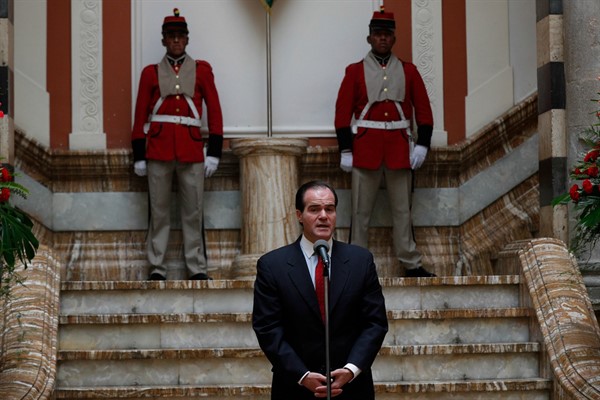President Donald Trump’s national security adviser, Robert O’Brien, traveled to Bogota this week, ostensibly to announce up to $5 billion in financing under the White House’s new United States-Colombia Growth Initiative. The money had been pledged months ago by the U.S. Development Finance Corporation, and it is contingent on investment-worthy projects, in any case. But the timing of the visit was hardly a coincidence. One of the officials traveling with O’Brien was Mauricio Claver-Carone, the White House’s point man on Latin America, who is making an audacious bid to lead the Inter-American Development Bank, or IDB. In remarks following his meeting with the U.S. delegation, Colombian President Ivan Duque reiterated his backing for Claver-Carone. The next day, Colombia released a supportive statement on behalf of a group of countries trying to head off a growing movement to derail his candidacy.
For Latin American and Caribbean nations that will depend heavily on the IDB to recover from the COVID-19 pandemic in the years to come, the implications of Claver-Carone’s bid are profound. A brash political operator best known for his decades lobbying for hard-line U.S. policies toward the Castro regime in Cuba, there is little in his background to suggest the pedigree or even the aspiration to run the Western Hemisphere’s principal development finance institution. Moreover, in keeping with an unwritten agreement in place since the bank’s founding during the Eisenhower administration, the IDB’s president has always been Latin American.
But the Trump administration rarely concerns itself with diplomatic niceties. And with Latin America flat on its back from the pandemic and failing to settle on a candidate to run the IDB, Claver-Carone spotted an opportunity to seize the prize for himself. Should he win the bank’s presidential election, scheduled for next month, he would serve a five-year term, providing Trump’s Latin America team and its congressional allies an insurance policy in the event that Trump loses reelection in November to Democratic nominee Joe Biden: control of the IDB for the entire first term of a potential Biden administration.

